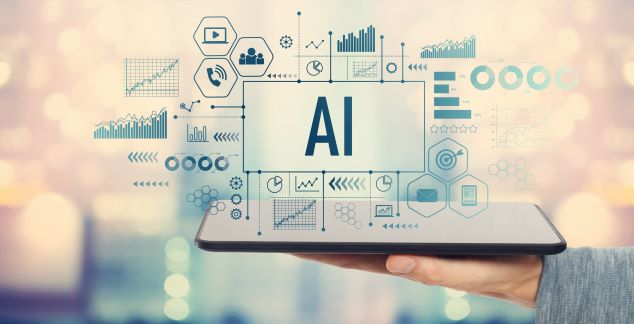Four surprising findings from our AI in HR research

Author: Hannah Mason
In March 2024, we conducted research exploring the use of AI at UK organisations, with a focus on how HR were using the new technologies and the benefits or challenges they faced in doing so. In this article, we explore some of the unexpected results from the survey.
The research found that around half of respondents (54.1%) have used AI at work, with many citing efficiency gains as a key benefit, though many also reported accuracy as a fundamental challenge while using the technology for their work.
1. The biggest concerns about AI come from organisations already implementing AI technologies
One perhaps counterintuitive finding from the research is that organisations that have taken a strategic approach to AI also have the greatest reservations about its implementation and use. We found that more than half (57.5%) of those that had developed guidelines, principles or policies for the use of AI at their organisation saw ethical or data protection concerns as presenting a key barrier to AI implementation.
Where training in AI had been provided to employees, there was a greater feeling that HR employees were not excited about the potential of AI in their working lives (75.7%).
In contrast, where no such guidelines had been developed, just 37.6% had the same ethical/data protection concerns. It may be that organisations that are developing their approach to AI are most aware of the risks associated with the new and evolving technology, while organisations that have not advanced their approach are more focused on other challenges they may face.
Regardless of whether organisations are already using AI, the research found similar levels of concern about ethics or data privacy. Around two-fifths (42.9%) of organisations that have AI integrated into at least one HR process had ethical or data privacy concerns, similar to organisations still at the stage of experimenting with AI (43.5%) or not experimenting with it at all (41.8%).
2. Training in AI may impact HR employee attitudes
Providing training in AI has the potential to allow employees to harness the new technologies and develop their skills in this area. But despite the benefits that might occur from facilitating this, we found that where training in AI had been provided to employees, there was a greater feeling that HR employees were not excited about the potential of AI in their working lives (75.7%). Where training had not been facilitated, fewer organisations reported that their HR workforce were not excited (43.1%).
This perhaps indicates that while the general idea of AI and experimentation with it may seem promising to employees, the reality of putting AI into practice is not met with the same interest. Alternatively, it may indicate that such training is putting additional pressure on HR, who may be responsible for facilitating the training themselves.
3. Generative AI is supporting data capabilities in HR teams
When you think about generative AI for HR, you might be imagining using it to create new policies or to produce job descriptions. However, an emerging theme was that tools such as ChatGPT are being used by HR professionals to help them use other software. Several respondents indicated that they were using AI in order to help them conduct data analyses, which included generating Excel formulas to support their data needs.
We know from our research into HR departments that data analysis skills are one of the top skills to be developed within HR functions. This indicates that AI has the potential to upskill or support employees where they may have previously struggled, and perhaps to reduce the impact of a skills gap in this area.
4. Larger organisations may be slower in adopting AI
Large organisations - with at least 1,000 employees - may look poised to be among the first to implement new technologies, as they might be more likely to be able to dedicate time and resource to exploring these new areas. However, our research found that lack of investment was predicted to be a barrier to implementing AI for over half (57.4%) of large organisations in the sample, while fewer (36.5%) small organisations - with less than 250 employees - reported the same.
A similar trend was observed throughout responses to the greatest barriers to implementing AI into HR processes. Close to one-third (29.8%) of large organisations reported that the attitudes of HR employees would pose a barrier, compared with 12.9% of small organisations. Finally, a lack of understanding about AI was reported as a barrier by three-quarters (76.6%) of the largest organisations, while fewer small organisations (65.9%) stated the same.
Related resources
- Artificial intelligence (AI) in HR research
- Three areas of focus for the AI workplace revolution
- Use of AI chatbots at work policy
- Safeguards for using ChatGPT and other bots for HR
